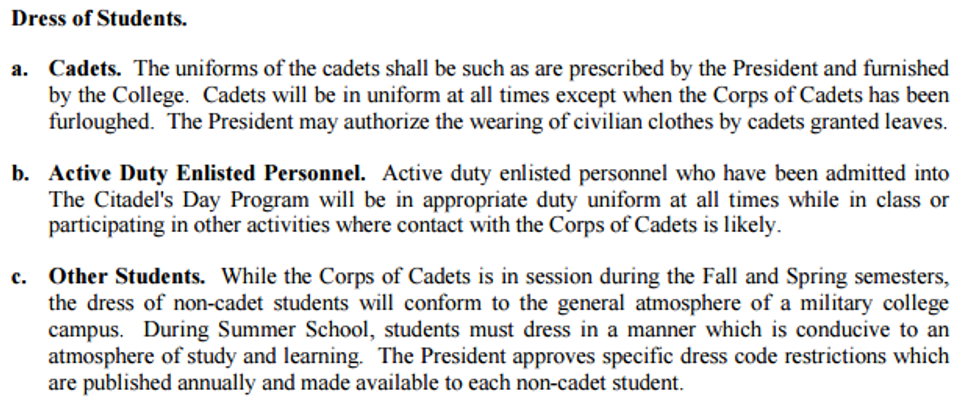The first amendment of the Bill of Rights guarantees that “Congress shall make no law respecting an establishment of religion, or prohibiting the free exercise thereof”. It basically prevents the government from dictating your beliefs. Separation of Church and State is a common belief held by Founders and the people today. However, interpretation of this belief has evolved.
The passing of the Protecting Freedom of Conscience from Government Discrimination Act dubbed the “Anti-LGBT Act” in Mississippi has caused major uproar. People are reflecting and reexamining what exactly what the Bill of Rights promises and what “separation of Church and State” means. The Act is designed to protect people with “sincerely held religious beliefs or moral convictions”. Essentially people are allowed to “provide or decline to provide services, accommodations, goods or privileges” based on their religious beliefs. They can also “make employment related decisions including but not limited to the decision whether or not to hire, terminate or discipline an individual whose conduct or religious beliefs are inconsistent with those of the religious organization…” The Act was created out of intense concern and fear that people of faith were being inhibited from practicing their beliefs. The intent was for those people to be able to carry out their beliefs without fear of retaliation.
Theoretically, people should be able to carry out their sincerely held beliefs without the new act in place. That was the intent of the Bill of Rights. This means that Christians, Muslims, Jews and every other faith are free to act according to their faith.
A common act of faith of Muslim women is wearing the hijab. The hijab, literally meaning “cover” in Arabic, is a headscarf that covers a woman’s hair. Why women choose to wear a hijab differs for each individual, however most agree that it is fulfilling a commandment from Allah to be modest. It reflects personal devotion to Allah.
Women wearing a hijab is an expression of religious freedom. Theoretically a business owner in Mississippi would be able to “make employment related decisions including but not limited to the decision whether or not to hire, terminate or discipline an individual whose conduct or religious beliefs are inconsistent with those of the religious organization” based on whether or not a woman chose to wear a hijab. It would protect that business owner’s ability to practice their religion without fear of retaliation.
Recently, a Muslim student was admitted into Citadel, a public military college in South Carolina. Students who attend the college must abide by rules and regulationsestablished by the college. For example, students are not allowed to bring alcoholic beverages on campus without authorization. In addition, the students have a strict dress policy as follows:
All students are expected to abide by these rules. This standard is about 175 years old and “the school has never granted a religious, or other accommodation that resulted in a change to the uniform”. Students know what the standards are before they apply. They are also expected to adhere to these standards or face disciplinary action. Now a Muslim student who was admitted to Citadel is requesting that the school allow her to wear a hijab.
Herein lies the problem. Should the school make an exception to their longstanding rule to accommodate one student’s religious beliefs?
The answer is no. The school makes no accommodations for anyone’s religious beliefs in regard to dress code. This standard is not new. It has been around for over a century. Citadel is known for adhering to its traditions. Women were not even allowed to attend until 20 years ago in 1996. This student knew well in advance what the expectations would be if she were to be admitted. At that point, it was her responsibility to assess whether or not attending that school would conflict with her religious beliefs. Obviously, she made the wrong decision.
Citadel is neutral when it comes to a woman’s right to wear a hijab. In fact, if they had to choose a side they would probably encourage women to exercise their religious freedom. After all, they are a military college. The point of the military is to protect its citizens so that they can live freely. She simply is not to wear her hijab on campus. No one can wear anything other than the uniform while on campus.
Is it because she is Muslim?
No.
It is because her hijab violates the dress code.
This is yet another example of how people are reexamining the fundamental principles of our nation. Every individual should be empowered to act according to their religious beliefs, but what happens when one person’s expression of religion interferes with another’s ability to buy a house or find a job? What happens when one person religious beliefs requires an institution to change their rules and regulations? Is that still religious freedom? Was this the intent?







 Energetic dance performance under the spotlight.
Energetic dance performance under the spotlight. Taylor Swift in a purple coat, captivating the crowd on stage.
Taylor Swift in a purple coat, captivating the crowd on stage. Taylor Swift shines on stage in a sparkling outfit and boots.
Taylor Swift shines on stage in a sparkling outfit and boots. Taylor Swift and Phoebe Bridgers sharing a joyful duet on stage.
Taylor Swift and Phoebe Bridgers sharing a joyful duet on stage.













